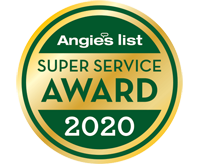FAQs
Window Questions:
What sorts of materials are your windows made of and what will work best for me?
There are basically three choices when it comes to window material.
Aluminum windows, with their easily scratched painted surfaces, easily conduct both heat and cold and are very poor insulators. Wood windows, which require constant painting and caulking, can absorb moisture, making them difficult to open and close, and they are even known to rot. Our solid vinyl windows, on the other hand, never need painting and won't show scratches, because the color goes throughout the material. This is partly why vinyl windows are quickly becoming the most popular choice for both new construction and replacement applications.
You’ll also want to consider custom-sized windows for the very simple reason that they'll fit better. Stock-sized windows often require extensive carpentry work both inside and outside your house which can be very costly and inconvenient. However, our custom-sized windows are manufactured to fit your existing window opening. You get the style and options you want while maintaining your glass area.
Is there any difference in how windows are made?
There are two basic types of construction: Mechanically fastened windows are screwed together at the corners, while welded windows, which are becoming increasingly popular, use a chemical or heating process for joining. Our welded windows utilize state-of-the-art heat welding equipment. Beware of windows with mitered corners screwed together or chemically welded corners, as they probably won't perform as well for you.
Can I replace my old windows with different styles or types?
Certainly. You may want to consult one of our design specialists to find the type of window that best complements your home's natural design. No matter which style or combination of styles you choose, we can custom-manufacture it all for you.
Aren't all window manufacturers essentially the same?
Nope! Many companies buy their parts and glass from various outside sources. Our manufacturers extrude most of their parts from the raw vinyl (PVC) resin themselves. You should also know that while a lot of manufacturers claim their windows are American-made, many are, in fact, imported from Canada and other countries. We're proud to say that every window we use is manufactured right here in the U.S.A.
What about strength, protection, and noise reduction?
You should look for a window that offers both superior strength and energy efficiency. Our computer- controlled process ensures a perfectly square window sash and main-frame with superior strength. For exceptional energy efficiency, a full interlock at the meeting rail helps protect your home against the elements or unwanted intrusions. In addition, our insulating glass unit traps dry air, creating an exceptional comfort barrier. With all of the above, homeowners we work with say there's a noticeable reduction in the amount of noise that enters their homes. A full interlock system at the point where upper and lower sashes meet helps stop air infiltration while providing an additional barrier against unwanted intrusions.
Do windows require a lot of maintenance?
Because our frames and sashes are made of vinyl, you can say goodbye to painting and caulking. Windows won't stick, and you don't have to remove storm windows in order to clean them. In fact, you can do it all from inside your home. An occasional wipe with a damp cloth will keep your windows looking like new for years to come, or with our new self-cleaning gloss, never clean a window again.
I have been reading about different test results on windows. How should this impact my buying decisions?
Be careful when looking at extremely specific results since many of them do not really indicate how well the window will work for you. Some apply to just certain parts of the window, like the frame and its R-value, and do not give an overall picture. Our windows are engineered to provide the optimum in energy savings and are rated by the National Fenestration Rating Council.
Siding Questions:
How does vinyl siding compare with other siding materials?
Very favorably. When compared to wood, brick, stone, stucco, or metal siding on the basis of initial cost, maintenance costs, appearance, durability and value, vinyl siding is clearly superior. We offer a broad range of vinyl siding products, so you can choose one that's easily affordable. Whichever you choose, you can expect the highest quality and lasting beauty. And our vinyl siding never needs painting or staining. It doesn't chip, peel, dent or rot, so you can forget costly repairs. Just rinse occasionally with a garden hose.
Alside vinyl siding is backed by a strong Lifetime Limited Warranty*. And because vinyl is the preferred siding for more and more homeowners, it retains most of its installed cost. Moreover, Alside premium vinyl siding provides all the beauty of expensive wood sidings with your choice of smooth or grained surfaces; rich, low-gloss colors; and a variety of classic siding profiles.
What can be done to improve the appearance and durability of my home's exterior?
Maybe you're tired of dealing with peeling paint and rotting clapboards. And you wonder, "Will another coat of paint really hide the weather-worn condition of my wood siding? And even if it can, is it worth the cost?" Or maybe you're thinking about replacing warped hardboard siding...or getting rid of dated asphalt or asbestos siding...or eliminating dented metal siding...or giving a fresh, contemporary look to masonry walls.
Now may be the time to switch to the easy-care beauty of Alside premium vinyl siding. With a wide choice of styles, colors, and trim options, it’s simple to create the look you want for your home - whether it's a contemporary colonial or a 120-year old farmhouse. New siding will rejuvenate an older home, giving it a completely new look and significantly reducing costs for home upkeep and maintenance. And with a full range of trim, soffit, and accessory options available in a host of different decorator colors, virtually any look can be achieved to improve the appearance and durability of your home's exterior.
Isn't it less costly to just repaint my home?
If you plan to move within the next three years, the answer is probably "yes." But if you plan to stay in your home longer than that, the calculations begin to heavily favor installing vinyl siding. Of course, if your home has special problems - for example, warped clapboards that have to be replaced or lead- based paint that has to be scraped and sanded off - the cost of painting can become truly staggering. Investing in new siding can prove to be an excellent choice in terms of payback. Compare the ongoing costs of painting every three to five years to a one-time investment in new vinyl siding. For most homeowners, the conclusion is obvious - vinyl siding is by far the better long-term value.
Are there any other materials that are better than vinyl?
Not when it comes to siding. Vinyl siding's outstanding features and benefits have made it the most popular siding material in America today. And because vinyl is the preferred siding for more and more homeowners, it retains most of its installed cost. It's the material of choice on new luxury homes...and the first choice for remodeling projects large and small. Leading manufacturers such as Alside offer a broad range of vinyl siding products, so you can choose one that's affordable for you. Plus, vinyl siding never needs painting or staining. It doesn't chip, peel, dent, or rot, so you can forget costly repairs. To maintain a like-new appearance, just rinse occasionally with a garden hose. And our vinyl siding offers flexible design options that make it as ideal for contemporary homes as it is for stately century-old Victorians. You can choose from smooth or grained surfaces; rich, low-gloss colors; and a wide variety of classic siding profiles-plus low-maintenance trim products and accessory options that add to both the beauty and value of your home. What's more, our vinyl sidings are backed by a strong Lifetime Limited Warranty*, so you can count on getting all the quality you paid for. Exceptional beauty. Durability. Economical price. Easy maintenance. Long-term value. Outstanding warranty. If these are your criteria, there's no better choice than vinyl siding from Green Solutions Remodeling.
How does the cost of vinyl siding compare to the added resale value it provides?
In terms of adding resale value to your home, vinyl siding is one of the best investments you can make. In its annual survey of project cost versus added value, Remodeling magazine said that "the highest payback comes from projects that give an older home the same features that have become standard in new homes."
Exterior improvements such as the installation of vinyl siding also make a home more attractive on the market. According to a real estate agent interviewed by Remodeling, "Things like new siding and new windows will not add dollar for dollar value...(but) they will cause the house to sell quicker for more money." Another point to keep in mind: if, like many homeowners, you add insulation to an older home at the same time you're having vinyl siding installed, you add even greater value and market appeal to your home.
Roofing Questions:
What is a fiberglass shingle?
As you may know, there are two basic types of asphalt shingles. Each consists of a core material that is coated with asphalt, and then covered with granules. This core, or base material, may be either fiberglass mat or organic felt. Shingles made of each type of base material possess specific characteristics and attributes that recommend them for particular situations.
Fiberglass shingles carry a Class A fire resistance rating from Underwriters Laboratories (UL), the highest fire rating available. Thus, fiber glass shingles are the best protection against the spread of flame on a roof. Fiberglass shingles are so called because they are built on a core, or mat, of fiberglass reinforcement. Asphalt coating is applied directly to this mat, and protective, colored granules are embedded into the coating. Since the mat does not need to be saturated with asphalt, fiberglass shingles are lighter in weight than organic shingles and are more resistant to heat and humidity. Perhaps the most important factor that influences the quality of fiberglass shingle performance is the quality of the mat used in the construction of the shingle.
Which shingle - fiberglass or organic - is better?
In the end, it must be said that either fiberglass or organic shingles can be manufactured to withstand extreme performance standards. Clearly, fiberglass-based shingles have the edge in warm weather areas. Both types of shingles can be made to perform well in cold weather. But fiberglass shingles must be manufactured to the most stringent performance standards to perform reliably in the far north. Not all fiberglass shingles meet these standards.
What is an asphalt shingle?
Both fiberglass and organic-based shingles are asphalt shingles although because organic shingles were developed before fiberglass shingles, the term "asphalt shingles" is often used to reference organic shingles only.
What is a composite shingle?
The same thing as an asphalt shingle; basically, any shingle constructed of a base (fiber glass or organic), asphalt, and granules.
What is an architectural or dimensional shingle?
Unlike standard 3-tab, or strip shingles, which are single layer in design, a growing number of shingles are multi-layered or "laminated." With a laminated shingle, random tabs or pads are applied to the base shingle to provide a layered effect that produces enhanced depth and dimension. When applied to the roof, laminated shingles also provide additional layers of coverage.
What is "SureStart" protection?
SureStart protection is designed to give the customer maximum protection during the early years following application. The SureStart period of the warranties varies by product from the first three to the first 10 years following application. SureStart protection, created by CertainTeed, provides full replacement cost on labor and materials if a manufacturing defect is discovered during the SureStart period. This means there will be no prorating of the CertainTeed liability during the SureStart period. Plus, the warranty and the remaining SureStart protection may be transferred to a new owner by the original purchaser during the SureStart period. Click here for more detailed information on SureStart protection.
Does a longer warranty mean a better product?
Since it is probable that defects, should any be present, will appear during the first three to five years of the life of the roof, a longer warranty does not necessarily mean as much as it would appear to.
If underlayment is not used on a roofing application, is the shingle warranty voided?
No. It's a recommendation, not a requirement. Standard shingle underlayment is not warranted by the manufacturer against defects in manufacturing. Some manufacturers make their shingle warranties conditional upon use of underlayment The use of WinterGuard or a double layer of standard shingle underlayment is required on slopes of 2/12, up to 4/12. However, we strongly recommend the use of underlayment on all slopes to "dry in" an exposed wood deck and to comply with Underwriters Laboratories requirements.
Waterproofing shingle underlayments, do not, in many cases, carry a warranty. Some carry warranties for five years. WinterGuard is warranted to protect against leakage, wherever it is applied, for 10 years.
What are ice dams?
The typical ice dam is a buildup of ice that forms near the eaves or gutters as the result of interior heat escaping into the attic and through the roof decking. The heat melts the snow and ice on the upper areas of the roof resulting in meltwater. This melted water runs to cold, lower areas or eaves and, depending on conditions, can refreeze. Leaks occur if the water finds its way under the shingles or behind fascias or cornices.
How does WinterGuard waterproofing underlayment work?
WinterGuard is a self-sticking composite material of modified asphalt and glass mat, formed into a rolled sheet. The asphalt provides the waterproofing. The polymers make the asphalt elastic and sticky, all the way through the sheet. The result is an amazing ability to both stretch and seal. This means that WinterGuard doesn't rip when stressed. It seals around nails driven through. It sticks to a clean deck like glue. And, it won't dry out during the warranted lifetime of an asphalt shingle system. The result is a warranted waterproof barrier beneath the shingle system, which water and wind-driven rain cannot penetrate.



